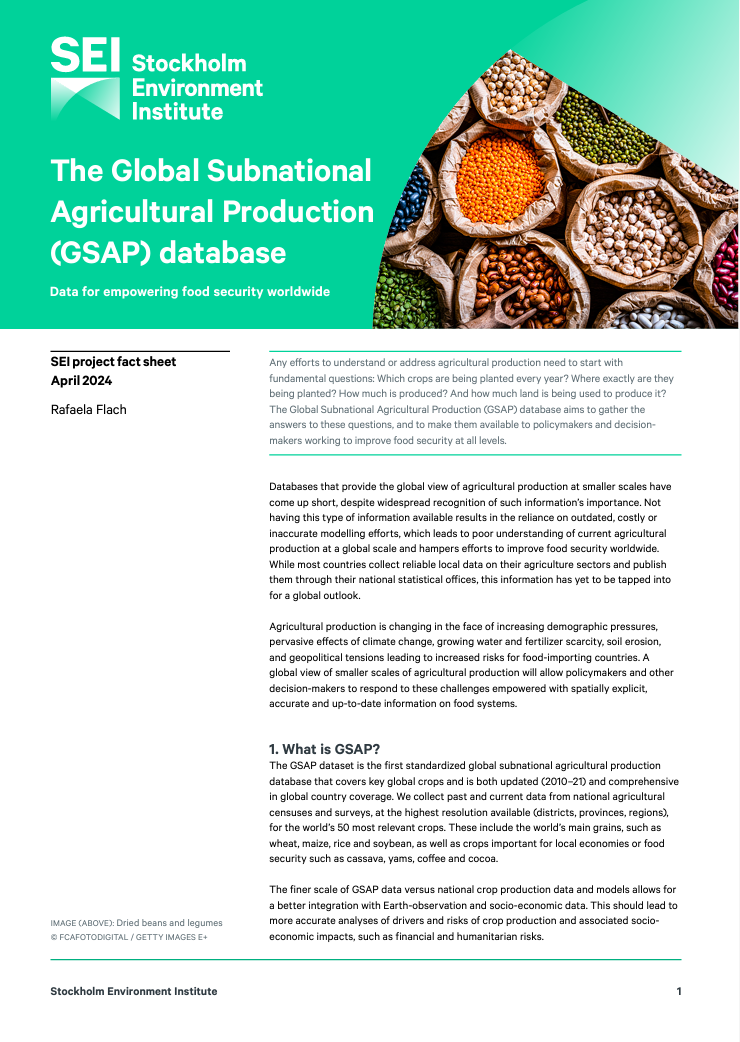The Global Subnational Agricultural Production (GSAP) Database Factsheet
The factsheet lays out how to use the Global Subnational Agricultural Production (GSAP) database, developed by the Stockholm Environment Institute (SEI). It shows how the GSAP helps to view globally smaller scales of production, that contribute towards the Sustainable Development Goals but are often left out of national level agricultural data sets. It lists its potential applications, to improve the accuracy, relevance and applicability of investigations on a range of variables including food security, supply chain risks and for climate adaptation. The GSAP is currently in just its first phase of development, but the factsheet highlights future prospects that SEI are going to continue to build on.
The GSAP dataset is the first standardized global subnational agricultural production database that covers key global crops and is both updated (2010–21) and comprehensive in global country coverage. SEI have collected and included past and current data from national agricultural censuses and surveys, at the highest resolution available (districts, provinces, regions), for the world’s 50 most relevant crops. These include the world’s main grains, such as wheat, maize, rice and soybean, as well as crops important for local economies or food security such as cassava, yams, coffee and cocoa.
